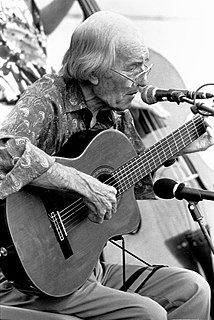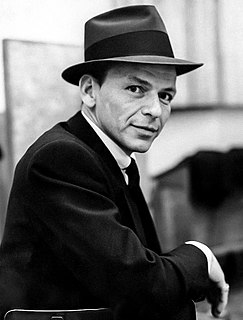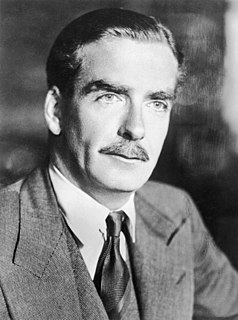A Quote by Aldous Huxley
Something that had been a single cell, a cluster of cells, a little sac of tissue, a kind of worm, a potential fish with gills, stirred in her womb and would one day become a man--a grown man, suffering and enjoying, loving and hating, thinking, remembering, imagining. And what had been a blob of jelly within her body would invent a god and worship; what had been a kind of fish would create, and, having created, would become the battleground of disputing good and evil; what had blindly lived in her as a parasitic worm would look at the stars, would listen to music, would read poetry.
Quote Topics
Battleground
Become
Been
Blindly
Body
Cell
Cells
Cluster
Create
Created
Day
Enjoying
Evil
Fish
God
Good
Good And Evil
Grown
Grown Man
Had
Hating
Having
Her
Imagining
Invent
Jelly
Kind
Listen
Little
Lived
Look
Loving
Man
Music
One Day
Poetry
Potential
Read
Remembering
Single
Something
Stars
Suffering
Thinking
Tissue
Within
Womb
Worm
Worship
Would
Would Be
Related Quotes
Her library would have been valuable to a bibliophile except she treated her books execrably. I would rarely open a volume that she had not desecrated by underlining her favorite sections with a ball-point pen. Once I had told her that I would rather see a museum bombed than a book underlined, but she dismissed my argument as mere sentimentality. She marked her books so that stunning images and ideas would not be lost to her.
If man had written the Gospels - say Shakespeare or Eugene O'Neill - the story of the gospel would have been drastically different. They would have placed the prince in halls and palaces and had him walking among the great. They would have had him surrounded by the important and significant of the time. Potentates and kings would have been His companions. But how sweetly common was the real God-man; though He had inhabited all eternity, He had come down and was subject to the rising and the setting of the sun.
Had drugs been decriminalized, crack would never have been invented and there would today be fewer addicts... The ghettos would not be drug-and-crime-infested no-man's lands... Colombia, Bolivia and Peru would not be suffering from narco-terror, and we would not be distorting our foreign policy because of it.
Jem, Cecily thought, with a pang in her heart. Her brother had always looked to him as a kind of North Star, a compass that would ever point him toward the right decision. She had never quite thought of her brother as lucky before, and certainly would not have expected to do so today, and yet-and yet in a way he had been. To always have someone to turn to like that, and not to worry constantly that one was looking to the wrong stars.
She didn’t understand why it was happening,” he said. “I had to tell her she would die. Her social worker said I had to tell her. I had to tell her she would die, so I told her she was going to heaven. She asked if I would be there, and I said that I would not, not yet. But eventually, she said, and I promised that yes, of course, very soon. And I told her that in the meantime we had great family up there that would take care of her. And she asked me when I would be there, and I told her soon. Twenty-two years ago.
I had been to São Paulo the year before and became pretty well acquainted with the music of composer Antonio Carlos Jobim, I had already started playing that music, and the audience response had been pretty good because those songs are so melodic. I knew it would be something that would be appealing; I wasn't thinking that it would make the top of the pop charts or anything like that.
What do you think it would have been like if Valentine had brought you up along with me? Would you have loved me?" Clary was very glad she had put her cup down, because if she hadn't, she would have dropped it. Sebastian was looking at her not with any shyness or the sort of natural awkwardness that might be attendant on such a bizarre question, but as if she were a curious, foreign life-form. "Well," she said. "You're my brother. I would have loved you. I would have...had to.
As a child, what I was missing was so much bigger to me than what I had. My mother-mythic, imaginary-was a deity and a superhero and a comfort all at once. If only I'd had her, surely, she would have been the answer to every problem; if only I'd had her , she would have been the cure for everything that ever had gone wrong in my life.
Under the guidance of the Reich, Europe would speedily have become unified. Once the Jewish poison had been eradicated, unification would have been an easy matter. France and Italy, each defeated in turn at an interval of a few months by the two Germanic Powers, would have been well out of it. Both would have had to renounce their inappropriate aspirations to greatness. At the same time they would have had to renounce their pretensions in North Africa and the Near East; and that would have allowed Europe to pursue a bold policy of friendship towards Islam.
If we had allowed things to drift, everything would have gone from bad to worse. Nasser would have become a kind of Moslem Mussolini, and our friends in Iraq, Jordan, Saudi Arabia, and even Iran would gradually have been brought down. His efforts would have spread westwards, and Libya and North Africa would have been brought under his control.
If she had been left alone she would have gone on, in her own way, enjoying herself thoroughly, until people found one day that she had turned imperceptibly into one of those women who have become old without ever having been middle aged: a little withered, a little acid, hard as nails, sentimentally kindhearted, and addicted to religion or small dogs.




































